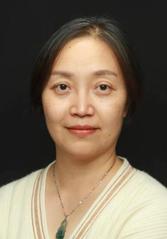About
Education
WorkExperience
ResumeProf. Xiaojia Chen, Ph.D. in Biochemistry and Molecular Biology, Senior Research Fellow of National Engineering Research Center of Genetic Medicine,Vice chairman of cell therapy and transformation branch of Guangdong Health Care Association. She has been long engaged in the research and development of proteins and peptides. The research and development of targeted small molecule compounds and active peptides were carried out based on the three established screening platforms, phage display peptide library screening platform, combinatorial chemical one-bead one-compound (OBOC) unnatural amino acid peptide library and computer simulation docking analysis system, as well as the established 3D cell model and zebrafish disease model for evaluation. At the same time, the functions of the above selected active molecules in the microenvironment of disease occurrence or tissue regeneration were explored. In addition, biomaterials, drug delivery or integrated detection systems for molecular imaging diagnosis and treatment containing above-mentioned active molecular are currently under research with cooperation with domestic and overseas partners. Prof. Chen participated in the development of the second national genetic engineering novel drug recombinant basic fibroblast growth factor (rbFGF). She has presided over and participated in many national provincial and ministerial level and enterprise research projects and won three provincial and ministerial awards as the main participant. In recent years, she has published dozens of papers, 2 PCT international patents, and more than ten authorized invention patents by China Intellectual Property Administration. Up to now, three patents have transferred and an authorized patent is licensed. Teaching researchSocial PositionDynamic activityFieldOpen CourseProjectAchievements
The software works
(1) Establishment of an active ingredient screening platform based on 3D cell models and zebrafish models; (2) Research and development of targeted active small molecule peptides: A natural amino acid peptide screening platform for biological phage screening has been established, and a non natural amino acid peptide screening platform for combinatorial chemistry OBOC screening has been established in collaboration with the well-known combinatorial chemistry laboratory Kit Lam in the United States; Building a screening platform for functional short peptides based on bioinformatics simulation; (3) Conduct research on the functions and roles of FGFR and other tyrosine kinase receptor families and their ligands in the disease microenvironment and tissue repair; (4) Collaborate with domestic and foreign cooperative units to research and develop integrated detection systems for biomaterials and drug delivery/molecular imaging containing active ingredients. PatentHonorAchievement |

